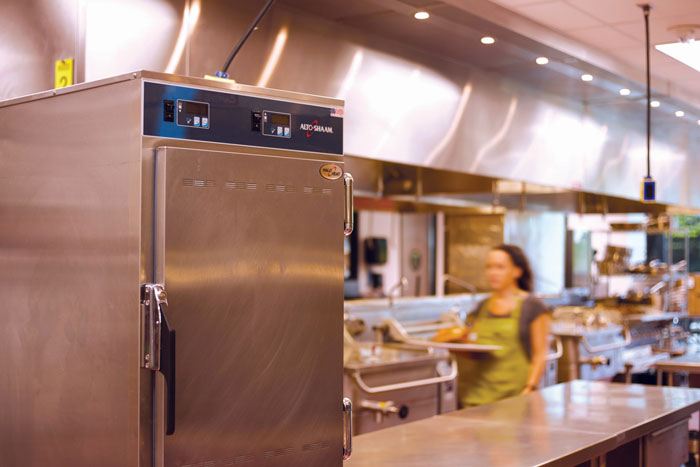With school nutrition directors in the height of back-to-school programming, they face a number of challenges around feeding students. Explore how to safely and effectively execute a classroom meal delivery program this fall with a full system of mobile, flexible equipment
Designing adapted school foodservice models has proven challenging for nutrition directors, who are navigating rapidly shifting reopening scenarios and safety guidelines.
Classroom meal delivery programs are becoming the preferred alternative to cafeteria-style dining. However, without the right systems in place, classroom delivery could become logistically complex for schools to execute, especially with growing labor limitations.
School nutrition directors have a number of concerns while in the height of back-to-school planning, including how to transport food efficiently and safely; how to streamline labor and food production; and how to achieve high food quality and consistency.
Multi-functional, high-volume and mobile equipment is the key to flexible, safe and consistent classroom delivery programs that also reduce operating and labor costs. Supporting adapted school foodservice models, Alto-Shaam provides full equipment systems that can increase production, reduce costs and enable social distancing.
 Alto-Shaam’s heated holding cabinets have optional locking casters, allowing operators to roll meals into classrooms
Alto-Shaam’s heated holding cabinets have optional locking casters, allowing operators to roll meals into classrooms
Classroom Delivery
Cold bagged lunches prepared in an assembly line are one of a few meal delivery options under consideration by schools. However, hot meal programs are still possible. Ventless, mobile cooking and holding equipment can streamline food production and further enable social distancing during mealtimes.
Alto-Shaam Cook & Hold ovens and heated holding cabinets have optional locking casters that allow operators to roll meals into classrooms, minimizing large groups in cafeterias. K-12 operators are also able to place these ventless, mobile pieces of equipment in designated food production spaces, to support distance between staff during the food production process.
Shifting High-Volume Needs
As schools adapt to classroom meal delivery programs, operators are in need of more flexible cooking equipment that can support high-volume food production. Multi-functional ovens, such as Combitherm® combi ovens and Vector®Multi-Cook ovens, allow operators to execute a variety of cooking applications while maximizing food quality and consistency.
A one-of-a-kind solution, Alto-Shaam’s Combi-Vector stacking configurations provide up to four or five independent oven chambers—providing the most value out of a single, vertical footprint. With programmable recipes and intuitive controls, school foodservice programs can further streamline labor while maintaining improved consistency at higher volumes.
With the right equipment systems in place, schools can effortlessly execute a classroom meal delivery program.
Discover equipment solutions tailored to modified school meal programs by watching Alto-Shaam’s latest K-12 solutions webinar.



